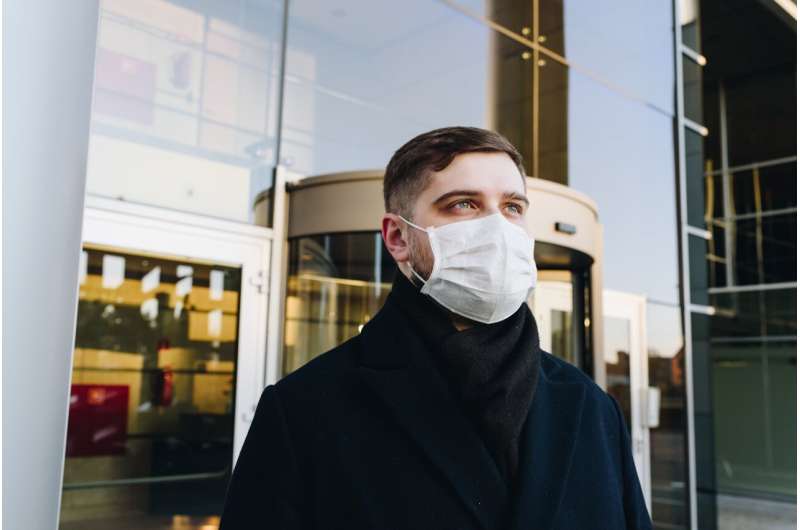Spain to require face masks outdoors again as infections soar

Spain will reimpose a nationwide rule requiring the use of face masks outdoors, the government said Wednesday, as the country grapples with a spike in COVID-19 infections.
Prime Minister Pedro Sanchez's cabinet will hold a meeting Thursday to approve the decree, the government said in a statement, without specifying when it would come into force.
Spain ended mandatory outdoor mask use in late June, while still requiring them indoors in public spaces or in crowded outdoor spaces where social distancing was impossible.
It was first imposed in May 2020 after the first wave of the virus.
The announcement came as Sanchez met via video with regional leaders to discuss ways to reduce the spread of the Omicron variant first identified in southern Africa late last month.
Spain has around 80 percent of its population of 47 million people vaccinated—one of the highest rates in the world.
Until recently, it had avoided the surge in infections seen elsewhere in Europe which led to tighter rules.
But the arrival of Omicron has fuelled infections, with a record of nearly 50,000 new cases recorded on Tuesday, even if hospital admissions and ICU occupancy remain fairly low compared to previous COVID-19 waves.
- Different regional approaches—Spain's coronavirus infection rate rose above 500 cases per 100,000 people on Friday, crossing over the threshold considered "very high risk" by the health ministry and more than doubling since the start of December.
On Tuesday, it stood at 695 cases per 100,000.
Omicron accounts for around 47 percent of total COVID-19 infections in Spain, according to official data released Tuesday, having shot up from just 3.0 percent the week before.
Under Spain's highly decentralised system of government, regions are responsible for health policy. Sanchez called Wednesday's meeting to try to coordinate the response to the surge in infections ahead of the Christmas break.
The northeastern region of Catalonia, whose capital is Barcelona, is poised to be the first Spanish region reinstate a nighly curfew.
It has asked the courts to authorise a series of restrictions, including a nighly 1-6 am curfew, the closure of nightclubs and limiting capacity at gyms, restaurants and theatres, from December 24 and lasting 15 days.
In the Madrid region however, the conservative government had pledged to keep the hospitality sector open over the holidays.
Spain has been hard hit by the pandemic, recording nearly 89,000 deaths and 5.6 million infections since it started.
© 2021 AFP




















